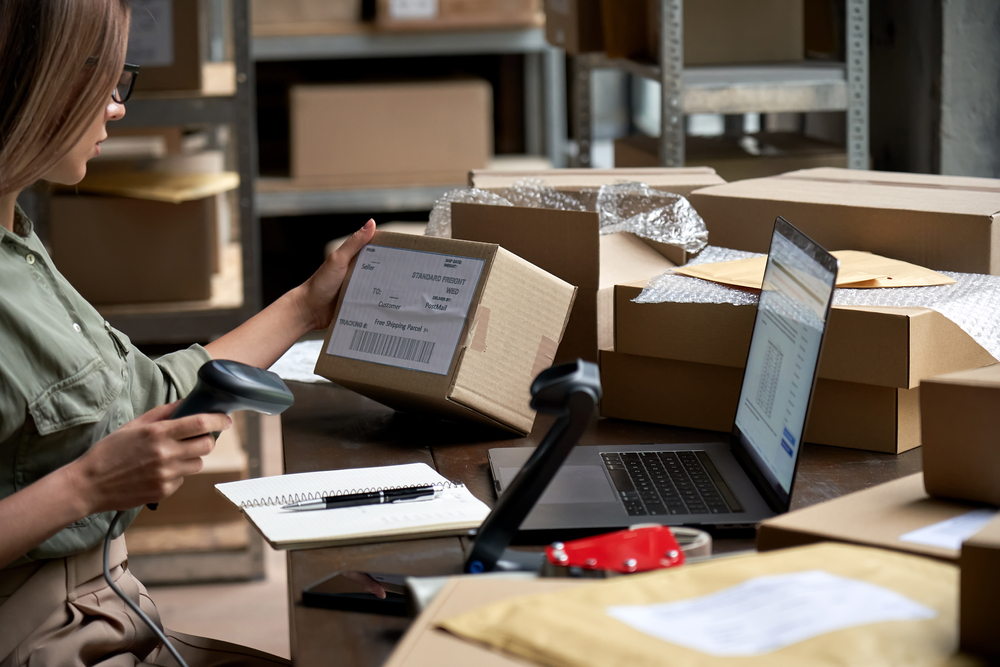Getting a B2B E-commerce store up and running takes a great deal of time and effort. So once you’ve set up your store, you’ll want to make sure the effort pays off. In this post, you’ll find 10 expert tips to help ensure the success of your B2B e-commerce venture.
1. Make sure customers can find what they’re looking for
The average website visitor spends 15 seconds on a page before leaving, so you need to make sure your visitors find what they’re looking for in 15 seconds or less.
You can do this by setting up an advanced search function, which at the very least should include:
- An auto-complete feature.
- Search result filters.
- Include alternative spellings.
- Show exact search matches.
2. Install an SSL certificate
Website security is a must for E-commerce stores. Nowadays, SSL certificates are the gold standard in E-commerce security, as they help prevent cyber attacks. Moreover, they help keep customer and payment data encrypted. Your hosting provider should be able to get this certificate installed for you.
3. VAT and taxes: don’t make your clients think
VAT and tax rules can be complex, especially if your customers are in a different country. Don’t make your clients waste time calculating these additional fees – this could be a big turn-off. Instead, make sure the final price is all-inclusive and is clearly displayed before customers get to the checkout page.
4. Account for bulk orders
Bulk orders are common in B2B E-commerce. Some customers will expect price adjustments based on order volume or item quantity. Try to accommodate lower prices for big or frequent orders, and make sure your pricing scheme is clearly visible to potential clients.
5. Optimise your store for mobile e-commerce
Mobile E-commerce (also known as E-commerce) is an unstoppable trend that both B2C and B2B businesses should be familiar with. To get your E-commerce store mobile-ready, you can do the following:
- Keep the website and page layout simple and uncluttered.
- Check that images and text are clearly displayed on small screens.
- Remove pop-ups from mobile website versions.
- Offer one-click checkout.
- Make sure you accept mobile payments or e-wallets, such as Google Pay, Apple Pay, Amazon Pay, etc.
- Ensure the site loads quickly on mobile devices (ideally, in 2 seconds or less).
You may also consider accelerated mobile pages, which were created by Google to deliver a first-class user experience. You can read more about them here, or ask your website developer for more details.
6. Choose a dedicated platform
There are two types of E-commerce platforms out there: B2C and B2B platforms. If you run a B2B E-commerce store, it’s only logical to go for a dedicated platform. These specialized solutions offer a range of useful features for your store, including:
- Customised pricing and delivery options based on client segmentation.
- Restricted content (including prices or pages only available to registered site users).
- Creating bulk E-commerce videos to optimize conversion.
- Automated bulk discounts.
- Automated minimum order quantity.
- One-click reorder function to make repeat business seamless.
It’s true that you can use a B2C platform and get the features above as add-ons, but a B2B E-commerce platform saves you time and effort by offering an all-in-one solution that’s ready to go.
7. Switch to cloud-based hosting
Cloud computing has been adopted by the world’s most successful retailers, and it’s expected to keep gaining popularity. Basically, cloud computing entails the online delivery of IT services.
There are several advantages to this model, including improved data security, lower operating costs, scalability, better server uptime, back-up and disaster recovery, and higher loading speeds.
These benefits make cloud hosting the ideal match for dedicated B2B e-commerce platforms.
8. Use high-quality images
Product descriptions aren’t enough to get your client’s attention. As they say, a picture is worth 1,000 words, so invest in high-quality images for all your products. This can help build trust among website users and make your products more appealing. Whenever possible, make sure your product images:
- Are not blurry.
- Can be zoomed in.
- Show all product variations (colour, size, etc.).
- Offer views of the product from different angles.
- Offer a 360-degree view.
9. Get familiar with advanced analytics
Almost all B2B E-commerce solutions have built-in analytics functions. It’s worth spending some time going over the data collected regularly, as this can give you brilliant insights into your customers and their needs.
Website analytics data can also pinpoint areas of improvement along the entire customer journey. With this data in mind, you can make smart decisions and improve the features and functions of your E-commerce site.
10. Create useful content
Anticipating your customers’ needs can earn you trust and loyalty. Website content plays an important role here. For example, if you always get asked the same questions, consider creating an FAQ section. If your customers are in different industries, you can create industry-specific guides. Or you can add downloadable buyer guides for your best-selling products.
Conclusion
B2B E-commerce is a very competitive area, but you can get your store to stand out from the rest by following the tips listed in this article. Each tip gets you closer to your business goals. So get going today, and enjoy the journey towards success.
Zoe Dromgoole is the Marketing Executive at Wood Flooring Ireland and has experience dealing with E-commerce websites in the past. Wood Flooring Ireland sell bespoke engineered wood flooring such as herringbone flooring.
E-Commerce Stock Image by insta_photos/Shutterstock

